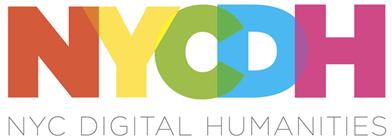Hi all,
I hope you can join us this coming Monday for the first of our public series on method in the humanities. Details below:
Monday, November 17, 2014 12:00pm
Columbia University, The Heyman Center, Second Floor Common Room
How do you summarize millions of books with a single tool? The question is relevant to literary scholars, but especially to historians of political institutions and the “official mind.” Paper Machines is a toolkit that works with minimal code on the texts that historians and other scholars are already using, visualizing them as their subjects change over time and space.
This talk will foreground the role of big data, visualizations, and historians as the designers of tools in the future shape of training in history departments, topics taken up in Guldi and David Armitage’s new book, The History Manifesto (October 2014, Cambridge University Press).
For more information, see the Paper Machines website and follow the project on Twitter@papermachines, or visit the website of Jo Guldi and follow her on Twitter@joguldi.
The On Method Heyman Center workshop series will examine the range of methods, theoretical and practical, used by humanities scholars and critics, past and present. What are the overarching techniques (technê)–what John Unsworth calls our “scholarly primitives”–and epistemologies (epistēmē), or theoretical apparati, inherent to humanities research? How are the technological challenges and opportunities provided by new research methods (computational, quantitative), organizational structures (labs, workshops, co-working) tethered to epistemological shifts as well? Following Thomas Kuhn, can we outline paradigms of humanistic inquiry? Does it make sense to define “method” in the context of the humanities, and if so, what are the varieties that method has taken on? What are the national speicificities of these methods, and of descriptions of the humanities itself?
While much time has been spent theorizing the “digital” in Digital Humanities, the workshop seeks to gain a greater understanding of the heritage and future of humanities methods in general, while contextualizing more precisely the contributions of computational approaches in the process.
Event is free and open to the public. Seating is first come, first served.
Attachments:
You must be
logged in to view attached files.
